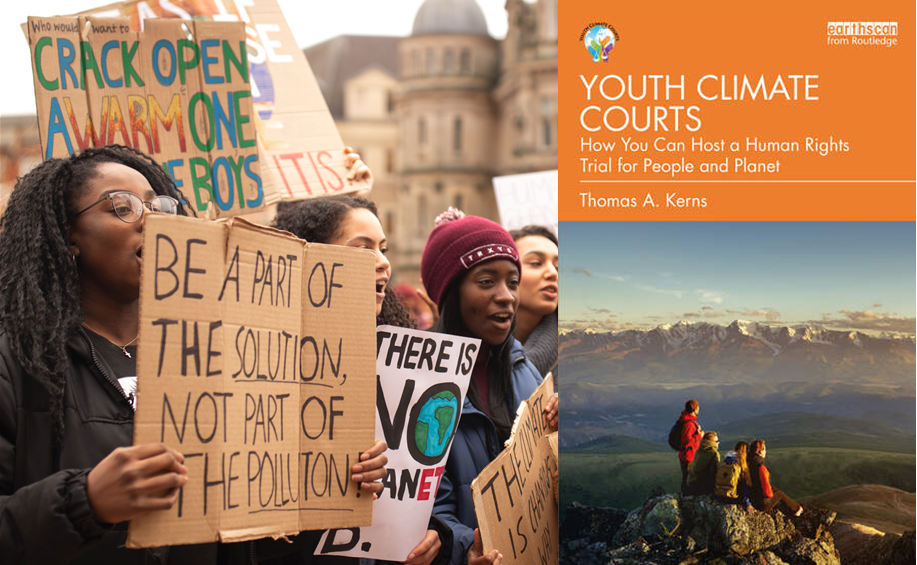It’s not an easy time for young people. Everywhere we turn, we’re faced with grim news: racism; sexism; homophobia; xenophobia; gun violence; nuclear armament; fracking; pollution; biodiversity loss; mutating viruses; economic disparity; rising fascism . . . and the one gargantuan threat hovering like a specter above all ills: climate change.
Frustratingly, almost every story about such issues ends with a nebulous comment such as, “It remains to be seen if [powerful entity] will [take meaningful action to protect our right to a safe and fruitful life] . . . or “Without a mass movement to [stop whatever the harm is], nothing will change.”
Such proclamations are enough to make us all stick our heads in the sand or an electronic device and hope that some savior will miraculously make things right. But clearly that’s no answer. The question to which young people (and all aware people, really) desperately want the answer is: “But what can I do . . . that can actually make a difference?”
With his book “Youth Climate Courts: How You Can Host a Human Rights Trial for People and Planet” (Routledge, 2022), author Tom Kerns offers a terrific response to that question. Intended for people aged teens to mid-20s (and those who love, teach, or mentor them), the book lays out a practical and replicable template for meaningful youth action in response to climate change.
The idea for Youth Climate Courts (YCC) grew out of Kerns’s work as co-organizer of the Permanent Peoples’ Tribunal on Human Rights, Fracking, and Climate Change, held in 2018 (and for which this reviewer contributed a testimonial). Putting human rights first makes sense for those whose lives will be most disrupted by climate chaos. Kerns’s most recent gift to today’s young people — he’s a professor emeritus of philosophy at Seattle College, where he taught, among many other things, an Environment and Human Rights course — is a powerful tool via which to challenge the governmental entities who are gambling away their future.
Young people decide if city or county government have failed them by not delivering on their human rights obligations to their residents. The youth then organize an open YCC trial, taking the roles of prosecutors, judge, and jury members, and summon government representatives to attend and respond to charges that the government has failed to protect, as is its obligation, the basic human and constitutional rights of their residents, especially the children, in response to climate change.
Kerns lays out the reasoning behind this approach in clear, easy-to-follow prose. He provides a legal primer, realistic scenarios, and step-by-step tools for young people in school, affinity, or community groups to use in forming and implementing their own YCC.
In the process of running a trial, the students gain comprehensive knowledge of human rights law that they can share with friends, family members, fellow students, and teachers. Kerns shows how YCCs can use community spaces and media to capture public attention and spark more action on climate. If the government is found not guilty, the court might ask its representatives to expand on their work or counsel other governments. If found guilty, there are several formal mandates that the youth judge might impose; Kerns explains two of them in detail and allows that there might be others that individual YCCs might identify.
Optimistically, Kerns writes, “There will certainly be some [officials] who, when their government is summoned to participate in a Youth Climate Court, will realize how important it is for them to engage and participate, how important to not dismiss what their youth are asking of them, and how crucial it is that they respond with grace and generosity.”
One hopes that there are more such government leaders than the other kind.
This is an innovative program that, if it catches on, holds great promise for climate action and also, no less importantly, for the well-being of young people who might otherwise succumb to despair or torpor. Every college and university library and bookstore would be wise to order copies of the book, which would make a great graduation or start-of-semester gift. It should engage and inspire young people to overcome fear and take meaningful collective action on climate. Their future is the prize.
Maura Stephens is an independent journalist, educator, book editor, and author. She spent years in mainstream media before switching to the indy world and has never looked back. From 2010 to 2016 she served as associate director of the Park Center for Independent Media.
Book info: Routledge, 2022; 124 pages. $26.95 paperback, ISBN 9781032109060 (hardback $115.00; eBook $24.25; eBook ISBN 9781003217640)
Photo by Callum Shaw on Unsplash.

